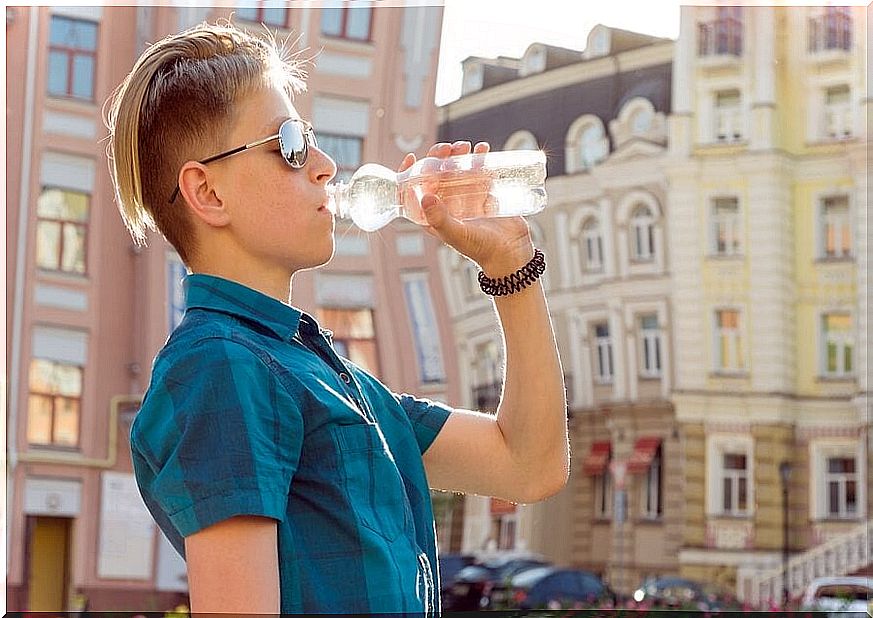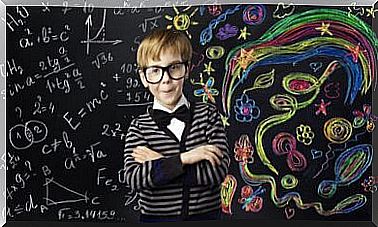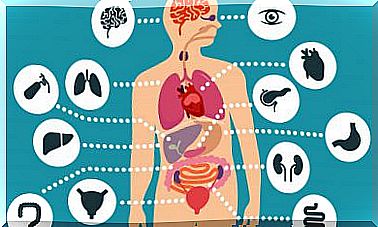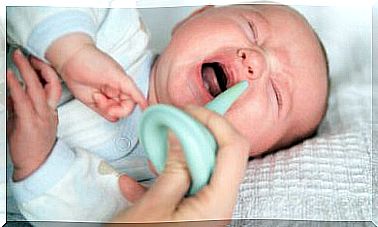Dehydration In Adolescence, What To Do?

Whether due to rebellion, misleading advertising or misinformation, young people hardly drink water. The downside is that dehydration in adolescence can be very dangerous, due to the amount of activity that takes place at this stage. We will tell you more in the next article.
Characteristics and symptoms of dehydration in adolescence
Basically, we could say that dehydration happens when a person loses more fluids than those incorporated into the body. Although it is dangerous at any time in life, in children, adolescents and the elderly it can have more than harmful effects on health.
The body is made up of two thirds of water; therefore, if someone is dehydrated, it means that their fluid level in the body is less than that amount. Small losses of water do not represent a problem, but this picture is maintained. This is evidenced by a study published in Emergency Medicine Clinics of North America.
The main symptom of this water imbalance in the body is thirst. It is recommended to drink water before having it, since when it appears it means that we are dehydrated. Other signs are:
- Feeling dizzy, incoordinated, or lightheaded.
- Dry, sticky mouth, no saliva production.
- Little urine and dark in color.
- Headache, lack of energy, lethargy, sleepiness.

Dehydration in adolescence: causes
As parents, we should not take dehydration in adolescence lightly, as it can be very dangerous for our children. Some of the reasons why it appears are:
1. Gastrointestinal diseases
The development of a digestive virus causes the loss of water through vomiting or diarrhea. If you add to that the fact that you don’t feel like eating or drinking anything, the situation worsens.
2. Play sports
Young people are very active and at this stage they are likely to do a lot of sport on a daily basis (or several times a week) in and out of school. With the physical effort that this entails, added to the fact that they do not always eat correctly, it is understandable that they become dehydrated.
It should be borne in mind that the loss of fluids during sports practice has been shown to reduce blood volume, which can be dangerous to health.
3. Lack of habit
If at home they are not drinking a lot of water during dinner or at any time of the day, then the adolescent is more likely not to consume it outside the home either . It is essential that adults also have this habit and instill it in their children.
4. Misleading advertisements
Drinking water is neither fun nor fashionable among young people. Perhaps that is due to the large amount of soft drink advertising that you must see and hear on a daily basis. When they go to a restaurant or have lunch with their friends, it can even be ‘frowned upon’ for someone to only drink water.
5. Climatic factors
Although it is a general factor that affects the entire population regardless of age, in the case of adolescents this goes hand in hand with the activities carried out. She is likely to go outside at noon in summer or lie in the sun to tan just like her friends.
Since he will not drink water and he will not eat fruits, which have a good amount of fluids, then the young person is more likely to become dehydrated.

Can you avoid dehydration in adolescence?
Of course you can. However, for this, certain habits must be changed. The ‘easiest’ way to avoid dehydration is to drink water or at least healthy liquids, such as herbal teas or natural fruit juices.
Since adolescence is usually a conflictive stage, the sooner the habit of drinking water is instilled, the better. Do not wait for the young person to become dehydrated, pass out or suffer some other severe symptoms to change habits.
If you ‘forget’ to drink liquids, we can always put a plastic bottle full of water in your bag. We can also choose to serve water at dinner time and leave out soft drinks, especially when it is hot.
Finally, of course, the information parents give their teenagers is very important. Instruct them to drink water before they feel thirsty and increase the amount when they play sports. And don’t forget to be a good example for them by drinking water yourself!










